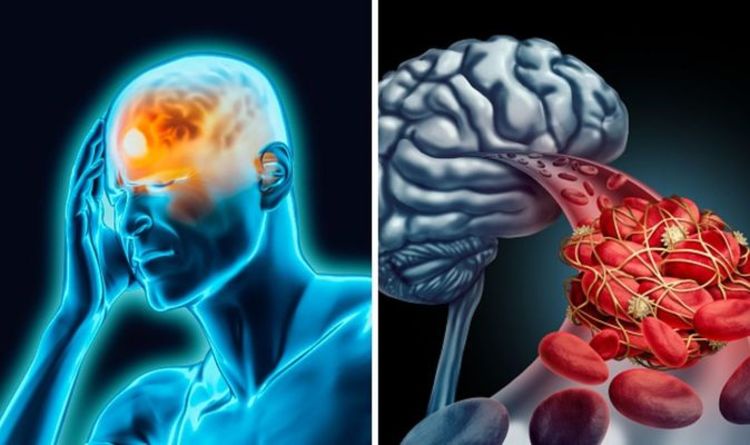Navigating through the complexities of our health can sometimes feel like trying to solve a puzzle without all the pieces. One such intricate health concern involves blood clots in the brain, a condition that can sound as daunting as it is to understand. But fear not! We're here to demystify this topic, breaking it down into digestible pieces, so you can grasp what it means, what causes it, and the symptoms to look out for—all in layman's terms.
What is a Blood Clot in the Brain?
Imagine your brain as a bustling city, with streets (blood vessels) teeming with traffic (blood flow) that supplies the city with everything it needs. Now, envision a roadblock (blood clot) suddenly appearing, disrupting the smooth flow of traffic. This blockage in the brain can prevent essential nutrients and oxygen from reaching parts of your brain, which can lead to serious health issues.
Causes: Why Do Blood Clots Happen?
Blood clots in the brain can occur for various reasons, each like a different story leading to the same troublesome roadblock. Here are a few of the common culprits:
- Stroke: Often, the term 'stroke' pops up in conversations about brain health. A stroke can occur when a clot blocks a blood vessel, cutting off the blood supply to part of the brain. Think of it as a sudden traffic jam that brings everything to a standstill.
- Injury: Just as a city might experience disruptions from an unexpected incident, an injury to the head can damage blood vessels, leading to clots as the body tries to repair itself.
- Medical Conditions: Certain conditions, such as heart disease, diabetes, or high cholesterol, can increase the risk of clot formation. It's like having roads that are more prone to congestion due to ongoing issues.
- Lifestyle Factors: Our daily choices, like smoking, excessive alcohol intake, or a sedentary lifestyle, can also contribute to the risk. Imagine these choices as neglecting road maintenance, eventually leading to problems.
- Genetics: Sometimes, the tendency to develop clots is something we inherit, like a city's layout that makes traffic jams more likely.
Symptoms: The Warning Signs to Watch Out For
Identifying the symptoms of a blood clot in the brain early can be crucial. Here are some of the signs that should ring alarm bells:
- Headache: Not just any headache, but one that feels different, possibly more severe or persistent than usual. It's like having a persistent honking sound in our bustling city, indicating something is not right.
- Weakness or Numbness: Experiencing sudden weakness, particularly on one side of the body, or a numb feeling, can be a red flag. It's akin to parts of the city suddenly losing power.
- Vision Problems: Blurred or double vision can indicate a clot, much like a smoggy day in our city metaphor, where visibility is suddenly reduced.
- Confusion or Difficulty Speaking: If words are not coming out right or if there's sudden confusion, it's a sign of trouble. Imagine the city's communication systems going haywire.
- Dizziness or Loss of Balance: Feeling unsteady or dizzy can also signal a clot, like an unexpected disruption in the city's transit system, throwing everything off balance.
- Seizures: In some cases, a clot can lead to seizures, which would be like a sudden, uncontrollable chaos erupting in our city.
Navigating the Path Forward
If you or someone you know experiences any of these symptoms, it's like seeing smoke in our metaphorical city—don't ignore it. Time is of the essence, and seeking immediate medical attention is crucial. The good news is, with the right care, many people can recover well from blood clots in the brain.
Prevention: Keeping the City Running Smoothly
While some factors like genetics can't be changed, there's a lot we can do to reduce the risk of blood clots:
- Stay Active: Regular exercise keeps the blood flowing smoothly, much like ensuring the city's traffic keeps moving.
- Eat Healthily: A balanced diet helps maintain good vascular health, akin to keeping the city's roads in good repair.
- Quit Smoking: Smoking increases the risk of clots, so quitting is like removing a major roadblock.
- Manage Chronic Conditions: Keeping conditions like diabetes or high blood pressure under control is crucial, similar to maintaining essential city services.
The Human Touch
Understanding blood clots in the brain can be overwhelming, but it's important to remember that you're not alone. There are resources, support groups, and medical professionals who can guide you through this journey. Just like navigating a complex city, it's okay to ask for directions and support along the way.
In wrapping up, blood clots in the brain are a serious matter, but with awareness, prompt action, and the right care, it's a challenge that can be navigated successfully. Keep an eye out for the signs, take care of your health, and always reach out for help when needed. Together, we can keep our city—our brain—thriving and healthy.
Conclusion
Navigating the complexities of blood clots in the brain requires vigilance, understanding, and timely intervention. Whether it's recognizing the early warning signs or taking preventative measures to keep our brain health on track, every step counts towards ensuring our well-being. For those facing the daunting prospect of dealing with a blood clot in the brain, the importance of expert medical intervention cannot be overstated. This is where the expertise of the best neurosurgeon in India can make a significant difference. With advanced techniques and personalized care, blood clot brain surgery in India has evolved, offering new hope and improved outcomes for patients. If you or a loved one is navigating this challenging journey, remember that you're not alone. The combination of expert medical care, supportive networks, and your own informed actions can pave the way towards recovery and well-being.


No comments yet